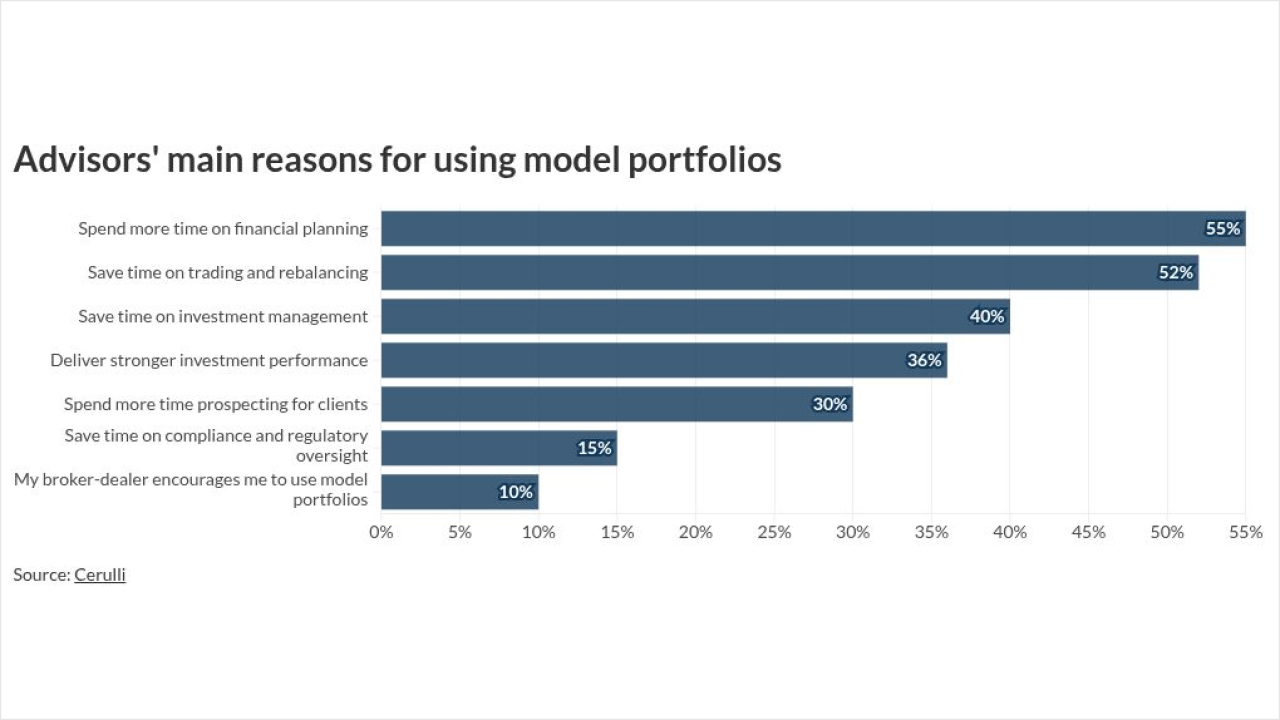Tocqueville Asset Management is the latest interim fund adviser to feel the heat as fund trustees increasingly flex their mutual fund governance muscles.
In preliminary proxy materials filed last month with the SEC, Tocqueville's portfolio management techniques employed when it served as interim manager to the now $152 million Fundamental Funds, are questioned by the fund's original adviser. The adviser's president is a shareholder of Fundamental Funds. The proxy seeks shareholder approval to oust the trustees and proposes the election of a new slate of trustees who will institute a class action suit against Tocqueville on behalf of the funds.
Tocqueville's plight, which parallels that in which another interim adviser recently found itself, further aggravates a problem fund directors industry-wide face. The fact that interim advisers are vulnerable to attack by ousted advisers makes it difficult for trustees to exercise their responsibilities of replacing advisers when they deem it in the best interest of shareholders.
Early last summer, Fundamental's board of directors fired the fund's original adviser, Fundamental Portfolio Advisors and awarded the advisory contract to Tocqueville. But that engagement was short-lived because of a disagreement over how to handle market timers and the contract lapsed after four months. The funds' trustees then named Cornerstone Equity Advisors the funds' interim adviser. Cornerstone is awaiting shareholder approval to be the permanent adviser.
In the proxy filing, Lance Brofman president of Fundamental Portfolio Advisors, charges that Tocqueville executed several highly questionable and unnecessary portfolio transactions while interim adviser. These include the purchase of a $33 million single non-rated private placement security for the Fundamental Tax-Free Money Market Fund. According to Brofman, that purchase, equal to roughly half of the money fund's total assets, grossly violated rule 2a-7 of the Investment Company Act of 1940. That rule limits the size of an investment in a single security.
Brofman also charges that Tocqueville unnecessarily eviscerated the portfolio of the Fundamental U.S. Government Fund, incurring a $1 million loss that sent the fund's net asset value plunging more than seven percent. Moreover, in late September, knowing it was a lame duck adviser, Tocqueville spitefully sold off principal strips of U.S. Treasury Bonds at a bargain basement price to sabotage the fund, Brofman alleges.
Brofman questions the motivation for these portfolio redemptions and charges that the transactions were not only inconsistent with the fund's investment objectives, but significantly harmed the funds and shareholders. He blames the independent trustees for tacitly approving Tocqueville's portfolio repositioning and blocking avenues for shareholder restitution.
"Tocqueville Asset Management did things out of malice," said Brofman in an interview. If it was not out of malice, then it was out of "gross incompetence," he said. Brofman maintains that Tocqueville was attempting to "scare people out of the fund" because the adviser knew the trustees were going to allow its contract to lapse. A Tocqueville principal was unavailable for comment.
SEC regulations allow independent fund trustees to refuse annual renewal of an adviser's management contract or terminate, with 60 days' notice, an existing contract and seek a new adviser without cause. In the last two years trustees have increasingly been making use of these powers, saying they are doing what is best for shareholders.
Tocqueville's experience parallels that of MFS of Boston in relation to the Navellier Series Aggressive Small Cap Equity Portfolio. In March of 1997, MFS became the interim adviser of the Navellier fund, originally managed by Navellier Management of Incline Village, Nevada. Claiming Navellier repeatedly thwarted its efforts to obtain information necessary to carry out its fiduciary duties, the Navellier board terminated the fund's advisory contract and gave it to MFS.
But when fund shareholders made it clear they preferred Navellier to MFS as their fund adviser, Navellier filed suit against MFS charging that MFS' adjustments to the fund's portfolio while it served as interim adviser burdened shareholders with unwelcome capital gains.
Increasingly the activities of interim advisers are being scrutinized if they fail in their bid to become a fund's permanent adviser. The threat of litigation surrounding an interim adviser's portfolio repositioning has caused many interested firms to flee to the sidelines.
"The likelihood of anyone stepping in (as interim adviser) is very remote," said David Sturms, lawyer with Vedder Price in Chicago. "The interim adviser is put in a terrible position."
That can handicap well-intentioned trustees. If trustees can fire an adviser but cannot find another willing to step in, the power to terminate the advisory contract is severely undermined, say people in the industry. The law gives the directors "watchdog" responsibilities, said Jon Carlson, a former Yacktman Funds trustee who was involved in the recent proxy battle with Don Yacktman.
"The problem is, we don't have teeth like a watchdog," he said.
Yacktman trustees considered terminating the funds' advisory contract, and drew up a list of three or four potential advisers. But, none of them would have been likely to serve in an interim capacity if they were asked to do so, says Carlson.
"Termination is the easy part," said Sturms. "The question is, What do you do after that?'"
According to Bob Plaze, associate director of the SEC's Division of Investment Management, the rules governing an interim manager were "designed to prevent the fund from becoming an orphan while the fund adviser has been removed." No restrictions exist to prevent the interim manager from taking on all of the responsibilities of a permanent manager, including actively managing the portfolio. Portfolio realignments, of course, and the particular investment objectives and guidelines of that fund are subject to board oversight, said Plaze.
There is no procedural protocol in place to handle this situation, said Les Ogg, lawyer to the independent trustees of American Express' IDS Family of Funds. But industry leaders are reportedly in discussions with regulators to try to come up with solutions.
A change in the law that regulators have discussed would allow the "interim" distinction to be dropped, and equip trustees with the power to appoint a new permanent adviser without requiring a shareholder vote. Right now shareholders have the final say as to whether a new management firm stays or goes.





